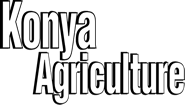Agricultural Blog: Discover Innovations and Developments in the Industry!
The agricultural sector is changing and developing rapidly. Modern agricultural techniques, sustainable production models, recent developments in agricultural mechanization and many other critical issues are of great importance to today's farmers and sector professionals
In this blog, you'll find a wide range of content, from the functions of agricultural machinery to a tractor buying guide, from efficient production methods to Türkiye's agricultural achievements.
By clicking on each title, you can access detailed information and discover important clues about the future of the agriculture.

 TR
TR
